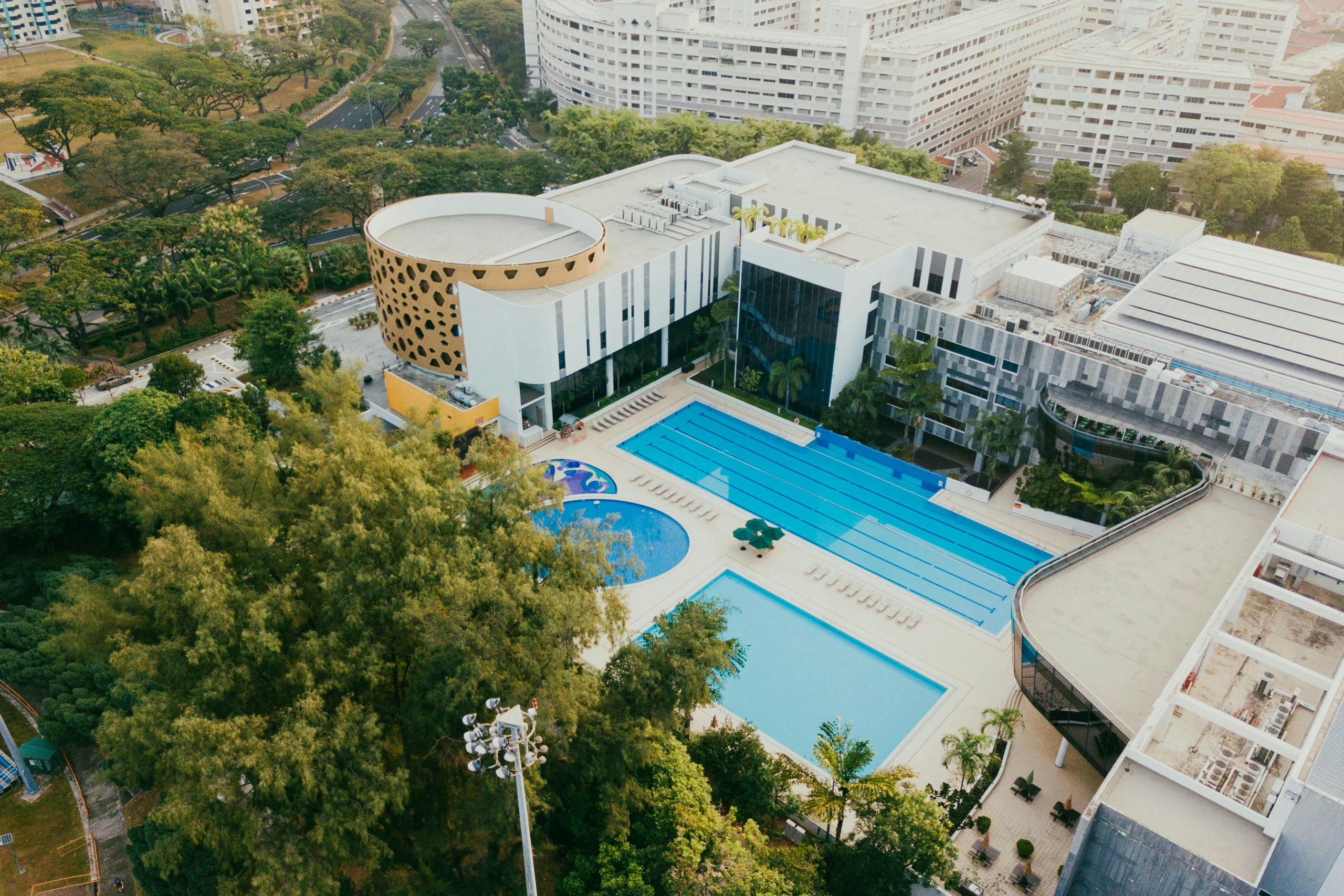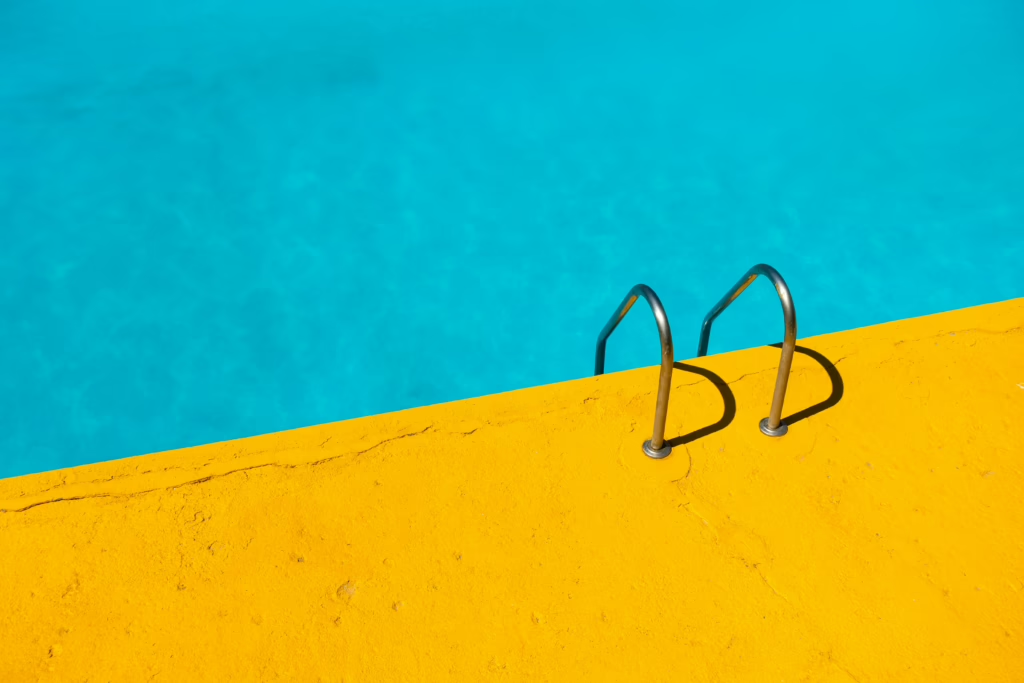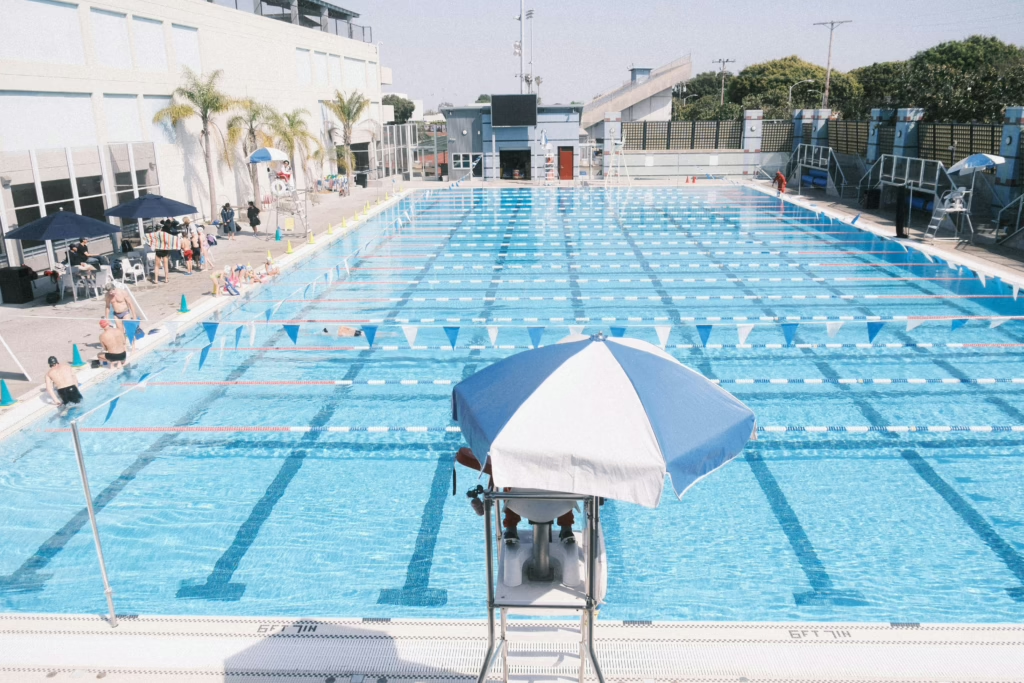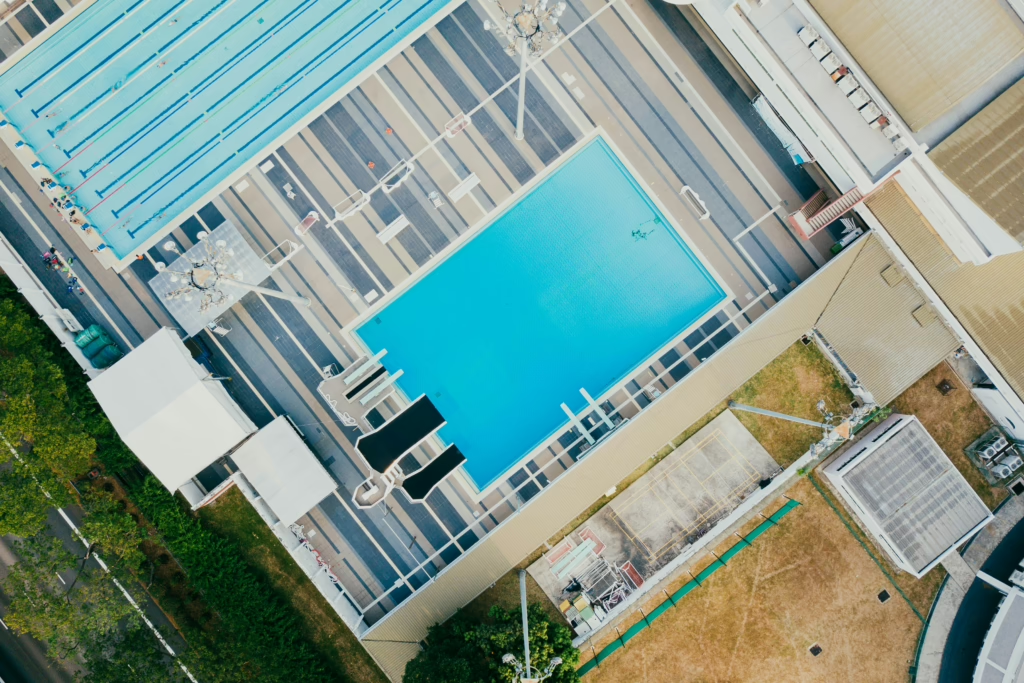Saltwater pools are perfect for the sunny weather in San Diego, but they still require regular care to stay in great shape. If you notice cloudy water or odd sounds coming from the system, it could mean something’s off. That’s where the best saltwater pool repair in San Diego comes in – they can spot these early warning signs and keep your pool clean, safe, and ready whenever you want to dive in.
If you’re noticing changes in your pool and wondering what to do next, don’t worry—you’re not alone. If you’re searching for “saltwater pool repair near me,” it might be time to call the pros who know how to handle saltwater pool issues. In this guide, we’ll walk you through five signs that mean it’s time to get the expert help before those small issues turn into big problems.
Your Salt Chlorine Generator is Acting Up
Your salt chlorine generator (SCG) is the heart of your saltwater pool, turning salt into the chlorine that keeps your water clean and safe. When it starts working improperly, it’s a clear signal that your pool may need professional attention. Here are some warning signs to watch for.
Warning Signs to Watch For
1. Seeing Error Messages on Your Pool System?
If your salt system shows alerts like “Check Salt” or “Inspect Cell,” it could mean there’s an issue with the sensors or something inside the system isn’t working right. A quick inspection or reset may help, but if the alerts don’t go away, it’s best to get it checked out by a professional.
2. Salt Looks Fine, But the Chlorine Levels Are Low
If your salt levels seem right but chlorine is still low, your generator might not be producing enough chlorine. It’s a good idea to double-check the settings or have a pro take a look.
3. A Calcium Buildup on Generator
White, chalky deposits on the cell plates can hinder the generator’s efficiency. Regular cleaning and maintaining balanced water chemistry can prevent this buildup.
<h4$>4. Unusual Noises Coming from the Unit
Strange sounds like buzzing or grinding from the generator may point to mechanical issues, such as a failing cooling fan.
Key Takeaway
If you notice any of these signs, it’s essential to reach out to a pool professional promptly. Taking care of the issue early on can save you from bigger headaches later and and help keep your pool safe and enjoyable for everyone.
Persistent Water Balance Issues
Your pool water should be as clear and clean as a sunny San Diego day! But if you’re constantly struggling to keep your pool water balanced, that could mean there’s a hidden problem that needs fixing. Even with the right care, certain signs might mean it’s time to call in the pool pros.
Red Flags to Notice
1. Difficulty Maintaining Proper pH Levels
If your pH level keeps bouncing up and down, it may be more than just a bad test strip. Faulty pool equipment or buildup in your salt system can make it hard to keep pH levels steady.
2. Cloudy Water That Doesn’t Clear with Normal Treatment
When your pool stays cloudy even after shocking or running the filter, there may be an issue with your salt cell, filtration system, or circulation. This can make swimming unsafe and less fun for everyone.
3. Fluctuating Chlorine Levels
If chlorine levels swing wildly even when salt levels are good, your salt chlorine generator may not work consistently, meaning your water isn’t staying sanitized as it should.
4. Algae Growth Despite Proper Chemical Readings
Algae shouldn’t be partying in your pool, especially when tests indicate everything looks fine. If green, black, or yellow algae keep returning back, pool circulation or an underperforming generator might be the culprit.
Key Takeaway
When balancing your pool water feels like a never-ending science experiment, it’s time to get help. A local expert can test your system, identify the root cause, and restore your saltwater pool to crystal-clear condition so you can relax and enjoy it again!
Declining System Performance
Your saltwater pool system is like the engine of a car— it needs to run smoothly to keep everything clean, safe, and fun. But when it starts acting up, you’ll notice your pool isn’t as easy to manage anymore. These signs may seem small at first, but they can point to bigger problems down the line if left unchecked.
Signs of Performance Issues
1. Longer Filtration Cycles Needed to Maintain Clarity
If your pool used to clear up in a few hours but now takes all day (or longer), the pool filter may be clogged, or your salt system may not be keeping up. There might be unwanted bacteria or debris harboring in your pool water.
2. Reduced Water Flow from Return Jets
Weaker water flow can be a sign of clogged pipes, failing pumps, or worn-out salt cell components. It affects circulation, which is key to even chemical distribution and clean water.
3. Pump Making Unusual Noises or Frequently Losing Prime
If your pump sounds like it’s growling, squealing, or struggling to stay on , it might be overheating or dealing with air leaks. This is not only annoying, but it could damage the motor when ignored.
4. Inconsistent Automation Function
If your timer, heater, or lighting systems randomly stop working, your automation panel or salt system controller might be glitching. Pool automation should make life easier, not more confusing.
Key Takeaway
When your pool system starts slowing down or acting unpredictably, it’s time to bring in the experts. Addressing these performance hiccups early can prevent costly repairs later and keep your San Diego saltwater pool running like a dream.
Visible Damage or Deterioration
Sometimes your pool doesn’t just “tell” you something’s wrong; it shows you! Physical damage around your saltwater pool system is more than just an eyesore. It’s a warning sign that something may be wearing out, breaking down, or putting your pool at risk for bigger problems.
What to Look For
1. Cracks or Damage to the Salt Cell Housing
The salt cell housing protects part of your system that produces chlorine. If you spot cracks or leaks on it, it can lead to dangerous malfunctions or poor water sanitation.
2. Corrosion on Metal Components
Saltwater is gentler on the skin, but it’s tough on metal! Look out for rust on ladders, handrails, or around your pump heater—especially in San Diego’s coastal air.
3. Deteriorating Pool Surfaces
If you see peeling plaster, fading tiles, or rough patches on your pool floor or walls, it might indicate chemical imbalance or aging materials. These can get worse fast when not repaired.
4. Leaks or Wet Spots Around the Equipment
If there are wet spots near your pool pump or filter area, that could be a leak from your pipes, fittings, or valves. Even a small drip can grow into a major repair if ignored.
Key Takeaway
Seeing damage around your pool system is a clear signal to call in a pro. Fixing cracks, corrosion, and leaks early keeps your pool safe, your equipment working longer, and your swim days worry-free!
Rising Utility Bills Without Increased Usage
If your pool fun is starting to cost more than expected, even when you’re not using it any more than usual, your system might be waving a big red flag. Unusual spikes in electricity, water, or chemical costs are often signs that something in your saltwater pool setup isn’t working efficiently. Catching these changes early can save your wallet from an even bigger splash later on.
Financial Warning Signs
1. Unexplained Increase in Electric Bills
When your pump, heater, or salt chlorine generator is struggling, it has to work harder and longer. That extra effort draws more power, driving up your electricity costs without improving pool performance.
2. Higher Than Normal Water Bills
If you’re topping off your pool more often than usual, you could have a hidden leak or excessive evaporation due to equipment malfunction. Monitor your water bill for changes that don’t match your actual usage.
3. Increasing Chemical Cost
Are you buying more salt, stabilizer, or chlorine than normal? Malfunctioning salt systems can throw your water balance off, making you use more chemicals just to keep things safe and clean.
4. Replacing Equipment Frequently
If parts like pumps, salt cells, or filters are wearing out faster than they should, it could be due to improper operation, chemical imbalance, or hidden system stress. These early failures cost money now and later.
Key Takeaway
Unexpected costs can sneak up if your saltwater pool isn’t running smoothly. Watching your utility bills closely and acting fast when they spike can help you catch hidden issues before they lead to expensive repairs. A pool pro can help track down the problem and bring your costs back in line.
Frequently Asked Questions
1. How often should I clean my salt cell?
Most experts recommend cleaning your salt cell every 3-6 months. But if you live in areas with hard water such as San Diego, you might need to do it more often due to calcium buildup. Always follow the manufacturer’s directions, and never scrape the cell with anything sharp!
2. Is it normal for my salt level to reduce over time?
Yes, it’s totally normal. Water splash-out, rain dilution, and filter backwashing can all lower your salt level slowly. Regular testing helps keep things balanced and your system running smoothly.
3. Why does my saltwater pool have low chlorine levels despite adequate salt?
This could be a sign that your salt chlorinator isn’t working properly. As Cabana Pools points out, issues such as dirty salt cells, worn-out generators, or incorrect settings can all cause this issue. A pro can quickly diagnose and fix the problem before it leads to algae growth.
4. What should I do if there’s a display error in my salt chlorinator?
Start by checking your user manual; many codes point to simple fixes like low salt or a dirty cell. If you’re stumped or the code won’t go away, it’s best to call a pool technician. They will get your system back on track safely.
5. What’s the typical lifespan of a salt chlorinator?
Salt chlorinators usually last 3-7 years, depending on usage, water chemistry, and regular maintenance. Cleaning your salt cell and keeping water balanced can help extend its life.
6. Is a saltwater pool truly maintenance-free?
Not quite! While saltwater pools are lower maintenance than traditional chlorine pools, they’re not “set-it-and-forget-it.” You still need to check water chemistry, clean the salt cell, and inspect equipment regularly, especially in San Diego’s sunny, mineral-rich environment.
7. How do I know if my salt cell needs replacement versus cleaning?
It might be worn out if cleaning your salt cell doesn’t fix low chlorine production or error messages. Most salt cells have a lifespan of a few years. A pool pro can test it and tell you for sure.
8. Can I convert my traditional chlorine pool to saltwater myself?
Technically, yes, but Cabana Pools recommends working with a professional. Installation involves plumbing, electrical work, and system calibration, which can be tricky and even risky without experience.
9. How does San Diego’s hard water affect my saltwater pool?
San Diego’s hard water can lead to calcium buildup in your salt cell and around your pool. That’s why regular cleaning and water testing are super important here. A water softening system or descaler might also help reduce damage over time.
10. How can I reduce energy costs for my saltwater pool?
Try using a variable-speed pump, cleaning filters regularly, and running your system during off-peak energy hours. Smart automation can also help control your system more efficiently. Keeping equipment well-maintained makes everything run better and uses less power!
Final Thoughts
A well-maintained saltwater pool means more fun and fewer headaches, and spotting trouble early makes all the difference. These red flags shouldn’t be ignored, whether it’s strange noises, cloudy water, or chlorine issues. With our 5-minute setup process, PoolLogic San Diego makes scheduling service easy and getting your pool back on track fast, friendly, and hassle-free.
If you’re searching for the best saltwater pool repair near me, don’t wait for small issues to turn into costly repairs. PoolLogic San Diego is here to keep your pool safe, clean, and efficient so you can focus on a relaxing and enjoyable swim.
Contact us now and let your pool shine like it’s meant to. After all, doesn’t your backyard oasis deserve a little expert care?



